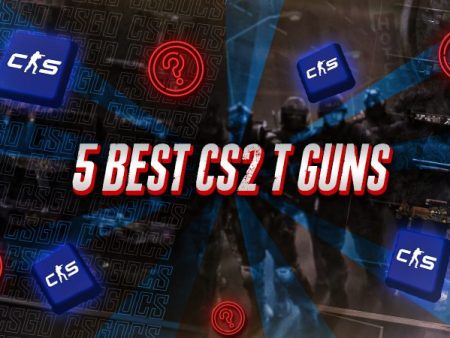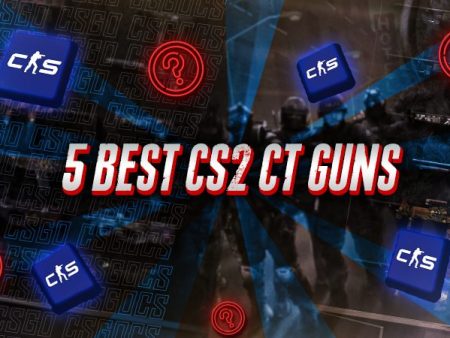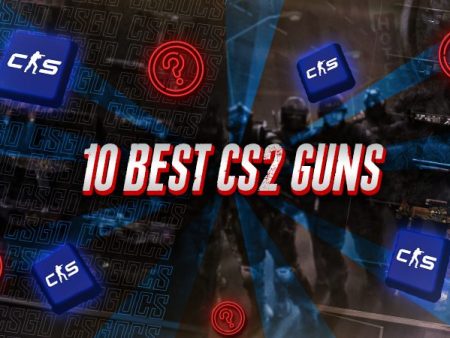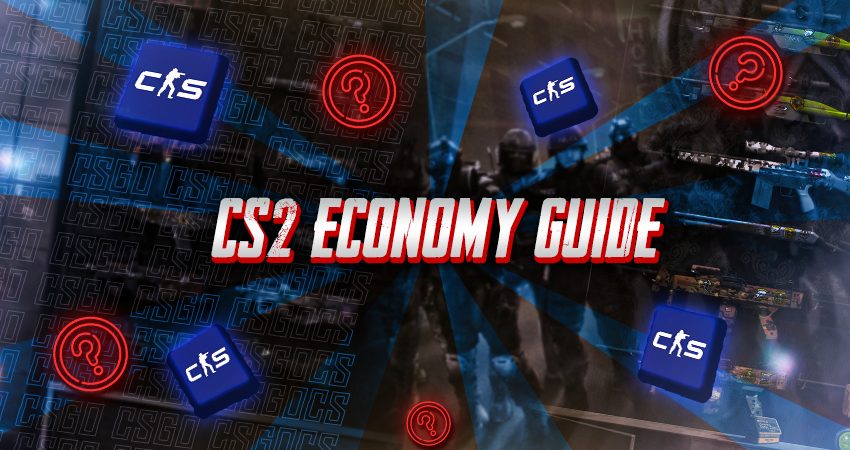
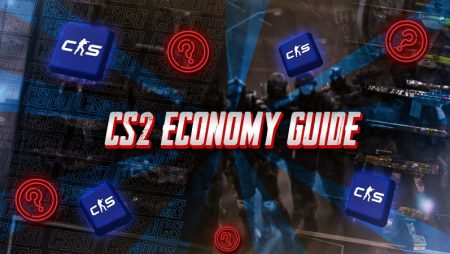
One of the many things that make CS2 stand out from other first-person shooters is its in-depth in-game economy system. However, many people still don’t know how that system works. Here is a complete guide on the economy of CS2.
Key Takeaways
- Counter-Strike 2 (CS2) distinguishes itself from other first-person shooters by implementing an intricate in-game economy system. Unlike traditional loadouts in other games, CS2 players use in-game money to purchase weapons and equipment in a buy phase before each round.
- Players accumulate money based on their performance in previous rounds. Earning money involves killing enemies with different weapon types or achieving round victory conditions. The money earned can be saved and used in subsequent rounds, providing strategic options for purchasing equipment.
- The economy in CS2 introduces strategic gameplay elements. Players can plan different economic strategies such as “Full Eco,” “Eco/Save,” “Quasi Buy,” “Full Buy,” and “Force Buy.” Each strategy involves allocating funds to balance between immediate round success and future loadouts.
- The rewards for winning or losing rounds vary depending on the circumstances. Winning teams receive money based on the round outcome, while losing teams get varying amounts of cash depending on the round sequence and game mode.
- Understanding the key economy-related terms is crucial for effective teamwork and coordination. Concepts like “Full Eco,” “Eco/Save,” “Quasi Buy,” “Full Buy,” and “Force Buy” help players communicate and strategize effectively, contributing to a well-coordinated team effort.
How Does CS2 In-Game Economy Work?
In most first-person shooters like Call of Duty, Apex Legends, and Battlefield, players can select the desired loadout, including primary, secondary, and equipment like grenades, before the match starts. They can use this gear throughout the match or change it anytime. However, that’s not how it works in CS2.
CS2 has an elaborate economy system where players use in-game money to purchase weapons and equipment. At the start of each round, there is a buy phase lasting 20 seconds, in which players can purchase weapons, armor, and other equipment using their in-game cash.
A player’s cash in a particular round depends on their purchases and key performance metrics from previous rounds. If you buy equipment, you’ll spend the money, and when you complete certain tasks, you earn money for further rounds.
The amount you save or earn can be used in any further rounds. If you don’t spend money, it will keep adding up until the match ends or till the side switches, after which the total money gets reset for both teams. Plus, the max amount of cash a player can have in a match of CS2 it’s $16000.
How to Earn Money in CS2
As mentioned, you need money in a match of CS2 to purchase weapons. To acquire money, you have to complete certain tasks. The first and most common task completed in a match of CS2 to earn money is killing opponents. The amount you get for killing an enemy depends on the weapon you use to kill them. Here is a list of the weapon types and the reward you receive for killing enemies with them.
- Knife $1500
- Pistol $300
- CZ75-Auto $100
- Submachine Gun $600
- P90 $300
- Shotgun $900
- Rifle & Machine Gun $300
- AWP $100
- Grenade $300
- Zeus x27 $0
Besides killing enemies, players also earn money by winning the round. Depending on the game mode, a team can win a round in several ways. However, we will only discuss the competitive mode here since the others are beyond the scope of this guide. Here is an explanation of the money you earn according to how a team won a round.
- Each team gets $3250 if they win by eliminating all enemy players.
- If Counter Terrorists win by defusing a bomb that was planted, they receive $3500.
- If CT wins by preventing Terrorists from planting and the timer runs out, they get $3250.
- If Terrorists win by successful bomb detonation, they receive $3500.
- The player who defuses or plants the bomb will receive a $300 reward.
Fortunately, players don’t just receive money in a match of CS2 by winning a round or killing an enemy team player. They also receive a certain amount of cash if they lose the round. If a team loses a pistol round, they receive $1900 for the next one. If they lose a regular round, they get $1400. Every consecutive round they lose in a row, they receive $500 on top of that $1400.
For example, if a team loses the second round in a row, they get $1900 or $1400 plus $500. They get $2400 or $1900 plus $500 for the third round lost in a row. Plus, each player on the Terrorist team gets an $800 bonus on top of what they get for losing the round if the bomb was already planted when they lost the round. However, if the Terrorists lose by staying alive until the timer runs out without planting, they will get 0$.
Note: These rewards are only for the competitive mode. The reward amount is different for other modes.
Important Economy Terminology in CS2 You Should Know About
In CS2, players use specific terms to represent their economic strategy for the current round. You must learn these strategies to stay on the same page with the team.
Full Eco / Full Save
A “Full Eco” or “Full Save” is a round where the team spends zero dollars. An example of when these rounds might be used is if the team doesn’t have enough cash to buy decent gear, knows the enemy is fully kitted, and desperately needs money for a full loadout the next round.
Eco / Save
During an “Eco” or “Save” round, the team will save just enough money that adds up to enough for a decent loadout for the next round. For example, players can buy SMGs or Pistols plus Armor. Ecos are done when the team has some cash but needs more for the next round.
Quasi Buy
A “Quasi Buy” is when one or two players from your team can get an Assault Rifle plus armor while the rest of the team gets SMGs with armor. These rounds are also meant to save cash for the next one. Quasi Buys are mostly used when one or two of your teammates have a lot of cash, but the rest doesn’t.
Full Buy
During a “Full Buy” round, the team will freely spend whatever amount is required for each player to get fully kitted with their main loadout, including an AWP for the AWPer. Teams will Full Buy when they are on a winning streak or have a lot of money accumulated throughout the rounds.
Force Buy
A “Force Buy” refers to a round where the team spends all their money, regardless of whether they have enough for a decent loadout or the next round. These rounds can be used during the last round before the switch or if the enemy team needs one more round to win the match. They can also be used in other strategic scenarios.
Conclusion
While the in-game economy of CS2 is quite intuitive, you still need to know all the basic terminology, what everything costs, and how you can make money. Carefully review all the numbers mentioned above to know what you are doing in a match of CS2.
FAQ
What is the economy system in CS2?
CS2 features a unique in-game economy where players use money to purchase weapons and gear before each round.
How do I earn money in CS2?
Earn money by killing opponents, winning rounds, and losing rounds. Different actions yield varying amounts of cash.
What happens to unspent money between rounds?
Unspent money accumulates and carries over to subsequent rounds, allowing for more strategic purchasing decisions.
What are economic strategies in CS2?
Economic strategies include “Full Eco,” “Eco/Save,” “Quasi Buy,” “Full Buy,” and “Force Buy,” each balancing current round performance with future loadouts.
What are the rewards for winning rounds?
Winning teams earn cash based on how they secure victory, whether by eliminating opponents, defusing bombs, or successful detonations.
What are the consequences of losing rounds?
Losing teams receive varying amounts of money, depending on the round sequence and the mode, aiding recovery for future rounds.
What is the significance of CS2 economy terminology?
Terms like “Full Eco,” “Eco/Save,” and others help teammates communicate strategies, enhancing coordination and overall gameplay.
Is the economy system different in competitive mode?
Yes, the economy rewards and strategies mentioned in the article primarily apply to CS2’s competitive mode.
Can I use these strategies in other game modes?
While the discussed strategies are focused on competitive mode, similar principles can be applied in other CS2 game modes.
Where can I learn more about CS2 gameplay mechanics?
Explore the comprehensive guide to CS2’s economy system, detailing how to earn, manage, and strategize with in-game money.










